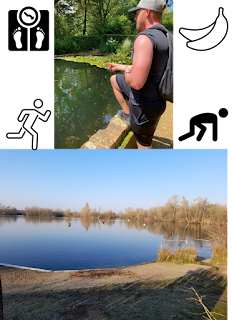The uses of a pumpkin!

Following our morning out pumpkin picking, my wonderful girlfriend began preparing her infamous pumpkin soup. The sort of infamous that I have heard about for over two years, but never tried. Meanwhile, I was preparing some HOT chicken strips and sweet potato chips. Looking over, I noticed she had some carrot and parsnip peels, ready for the food bin... Sneakily, I stole them and added them to my chicken. Then boasted about how good an idea it was, and instantly got caught out! Having saved the peelings from the bin , I eyed up the other ingredients to see what else I could make... and a quick google search later, I found out that the whole pumpkin can be eaten (except the stem) . This sounded much nicer than onion skins, so I read on some more! One suggestion was to pierce the pumpkin, then roast the whole thing – which is something to try next time I have a whole pumpkin laying around spare. A few more sugg...





